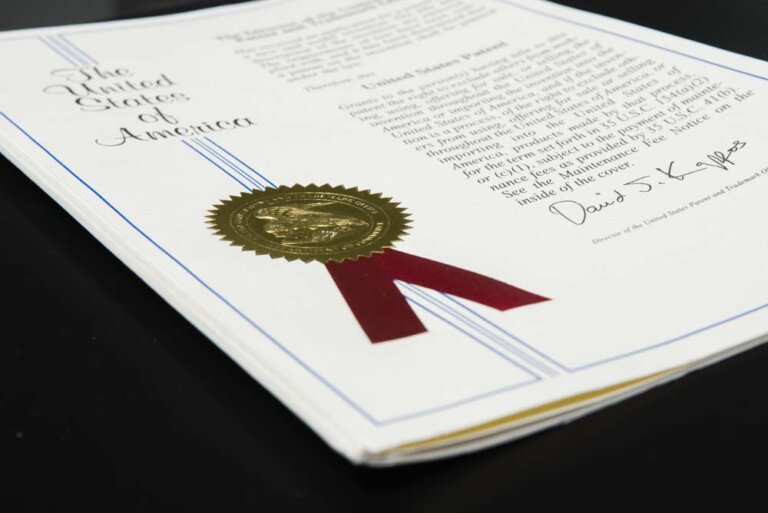What in the world is Intellectual Property anyway?
written by David Postolski, Partner and Patent Attorney at Gearhart Law
In a nutshell intellectual property (IP) rights are the federal protected rights afforded to makers, brand owners and creators.
If you want to protect something or stop someone from doing something that you are doing in an entrepreneurialventure then the only way to do that in the US and abroad is to ensure that no one has made it before, branded it in a similar way to yours or created something before you did. It’s that simple. IP as we call it gains you access to our federal court system to exclude an entity from coming on to your intellectual property or at least the threat of a law suit can keep them at buy or at the very least take a license from you. Those are pretty good options but making branding and creating are entirely different concepts under IP law.
If you make something or as we say invented something that is both novel and non obvious to what already our there then you can register that idea as an invention with the US patent and TM office. The process to file a patent takes about three years and begins with a search of a world wide database to see what it is about your idea that is protectable. It can be based in science, or engineering or computer science such as software. It can even be a cool design of a product or computer graphic. A patent attorney should help you as they understand how to draft these technical legal documents and if they succeed in proving that your invention is novel and no obvious then you get awarded a patent and have an exclusivity right to keep people out of your property or shall I say patent. In the food industry getting a patent on technology surrounding food or a new cooking technique that employs objects and tools that were invented or a new formulation or ingredient list that has achieved some unexpected result are all the rage. Do not assume your food idea is not protectable because if it’s not patentable under design, science or utilitarian features (and it likely is) then it could be protectable in many other ways including trade secret.
Now suppose you branded that patent filing in order to sell it or license it. Then that name you give it can be trademarked if you have interstate commerce in at least one other state in the union and of course like a patent no one has filed for a similar or same brand as you. If they have then you may need to add a logo as selling a different type of good or service under an already existing name may seem permissiblebut the original TM holder may believe that consumers are confusing the two products and the likely won’t like that. So always thinking about how to make your brand distinct and set apart from others is always the safest way to go in order to achieve a federal US trademark. This right would last ten years and renewable for ten year periods in perpetuity if you have continue to use it for the goods and services you originally told the TM office you were using it for. In the food industry your TM and branding is everything and usually your first line of offense and defense so not protecting can be dangerous. Also food shapes are also protectable as it unique packaging.
The last type of intellectual property is the copyright and protects creators authors writers dancers sculptors basically any sort of creative work that is both original and in some form of medium that is fixed. So a song on a piece of paper. It was written down and fixed in time on that paper. The author can Protect those words on the paper by registering their automatic protection of copyright. Originality would have to be shown which can sometime be a debate as Another creator or author may believe they were first to create it and thus you lacked originality. It can get very completed and it stems from the fact that patents and TMs are filed, examined agents existing patents and TMs and then awarded. With a copyright you are simple registering your work but really without any knowledge or scrutiny by the copyright office that someone may have created It and or filed their copyright before you. But if you do get a copyright registration and it can hold up against scrutiny from others as being original then it will last the creators liked plus seventy years. In the food industry recipes are not protectable but the creative content your food company creates is such as website content, marketing content, blogs, original art work and design and so many other concepts that people tend To overlook.
I know this is a lot but it’s important stuff. Be happy to meet talk or Skype about your potential ideas or businesses. It doesn’t cost anything for me to educate and empower you on the world of IP and food. I can be reached at david@www.gearhartlaw.com


